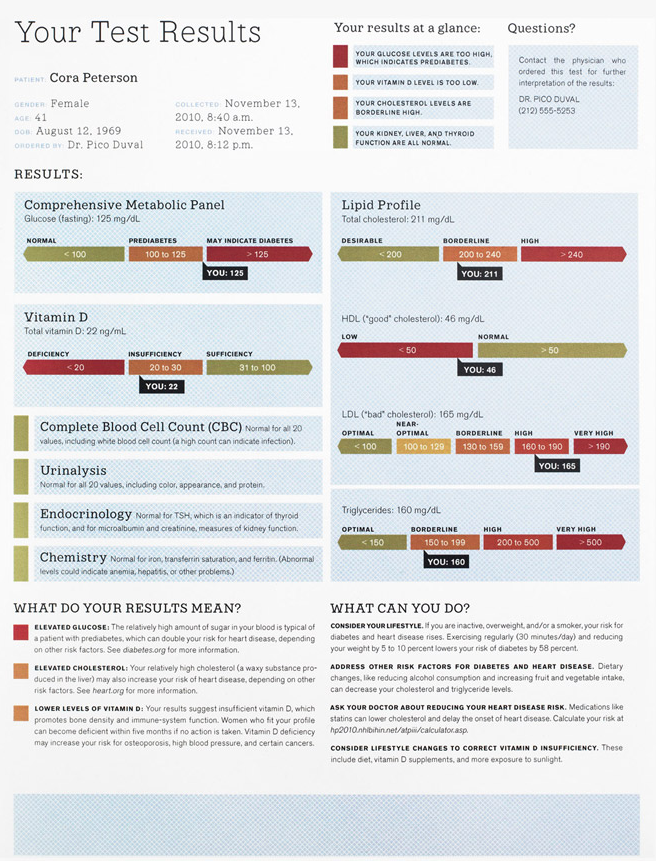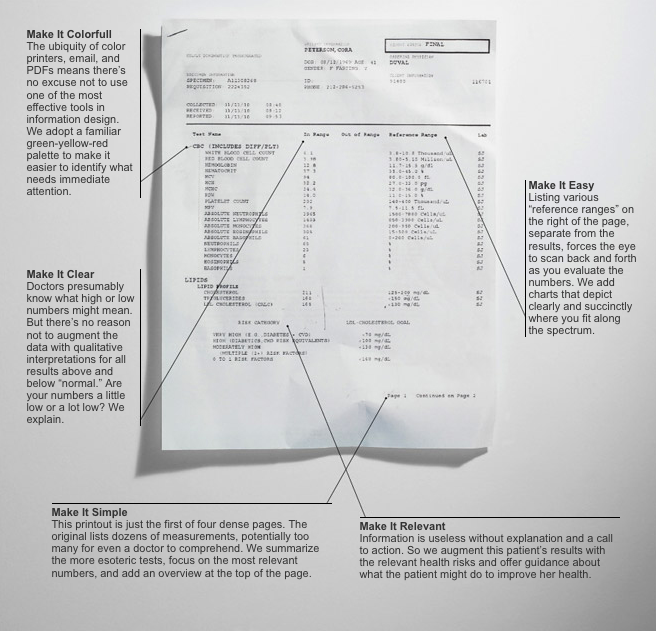When you break our job as creatives down into specific functions, one of the most valuable things we do is to take things people see everyday and look at them differently. So when Wired magazine published the results of three designers who were commissioned to team up with physicians at the Dartmouth Medical School Institute for Health Policy and Clinical Practice to re-imagine lab reports, I must admit I swooned a little.
You’ve probably had labs done on your blood at one point in your life. But there is a good chance you’ve never seen the results (in many states it’s illegal for a lab to send results to a patient). But even if you had, you probably couldn’t understand them on your own. They’re largely indecipherable to a lay person, filled with abbreviations and numbers that reveal the secrets of your blood only to those few in-the-know. I think that is terrible. Lab results don’t have to be intimidating. Confusing lab reports are a wasted opportunity to provide an important and informative tool to patients.
These lab report re-imaginings are inspirational, not only from a design standpoint, but for the future of our own healthcare.
1. The Basic Workup
To put it simply, the basic workup checks for everything to make sure you don’t have anything. It’s a large dragnet that rounds up all the usual suspects so that a doctor can focus on specific areas if there are any concerns.
The Basic Workup (Before)
The Basic Workup (After)

Results redesign: Mucca Design
2. The Heart Disease Test (CRP Test)
The CRP blood test measures vascular inflammation, and it’s a strong indicator of future cardiovascular problems. It is key to recommending what type of medical treatment you need and what you can do on your own to change your life. In other words, it’s really important — too bad you probably can’t understand it.
Heart Disease Test (Before)
Heart Disease Test (After)

Results redesign: David McCandless
3. The Prostate Test (PSA Test)
A PSA Test measures the amount of Prostate-specific antigen (a protein cooked up by the prostate gland) in your blood. PSA is sometimes called a biological marker or a tumor marker, though there is some controversy over this.
The Prostate Test (Before)
The Prostate Test (After)

Results redesign: Jung + Wenig





Hospitals are finally starting to look at their audiences from the outside in and looking at ways to make the patient experience more palatable, especially when patients would rather be interacting with anything but a hospital.